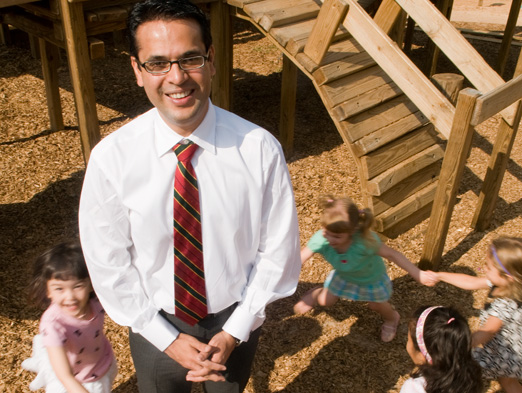All 50 states in the U.S. allow exemptions from vaccination for students who have medical issues, and most allow religious exemptions. Some also allow exemptions based on varying philosophical and personal beliefs.
Researchers from Emory University's Rollins School of Public Health compared vaccination policies and rates of exemption from school-based immunizations in the U.S. and found that non-medical exemptions increased at a heightened rate from 2005 to 2011. Their study findings are published in a letter in the September 20 issue of the New England Journal of Medicine.
Using data compiled by the Centers for Disease Control and Prevention (CDC) for school years 2005–2006 through 2010–2011, the researchers calculated the annual change in the rates of nonmedical exemptions from school immunization requirements and compared those rates between states that allow philosophical exemptions and states that allow only religious exemptions. They also compared states based on the difficulty of obtaining non-medical exemptions because of certain administrative procedures like the requirement of notarization.
Researchers found that rates for non-medical exemptions in states that allowed philosophical exemptions were 2.54 times higher than rates in states that allowed only religious exemptions. Although the absolute rates were higher in states that allowed philosophical exemptions, the average annual rate increase among states that allowed only religious exemptions was higher than the rate in states that allowed philosophical exemptions.
"Since school immunization requirements play a major role in controlling vaccine-preventable diseases in the United States, studies like this underscore the need for states to examine their current exemption policies," says lead author Saad B. Omer, assistant professor of global health, epidemiology and pediatrics, Emory's Rollins School of Public Health and Emory University School of Medicine.
In the states with easy exemption policies, the rates of non-medical exemptions were 2.31 times higher than rates in states with difficult exemption policies. By 2011, the non-medical exemption rate in states with easy exemption criteria increased to 3.3 percent, an average annual increase of 13 percent. In contrast, nonmedical exemption rates in states with difficult exemption criteria increased by 8 percent annually to 1.3 percent in 2011. In states with exemption criteria of medium difficulty, rates increased by 18 percent annually to 2.0 percent in 2011.
Previous research from 1991 through 2004 showed an increase in exemption rates among only those states with philosophical exemptions and in states with easy exemption procedures.
"Even in these states the average rate of increase was lower than that found during the current study period," writes Omer.

